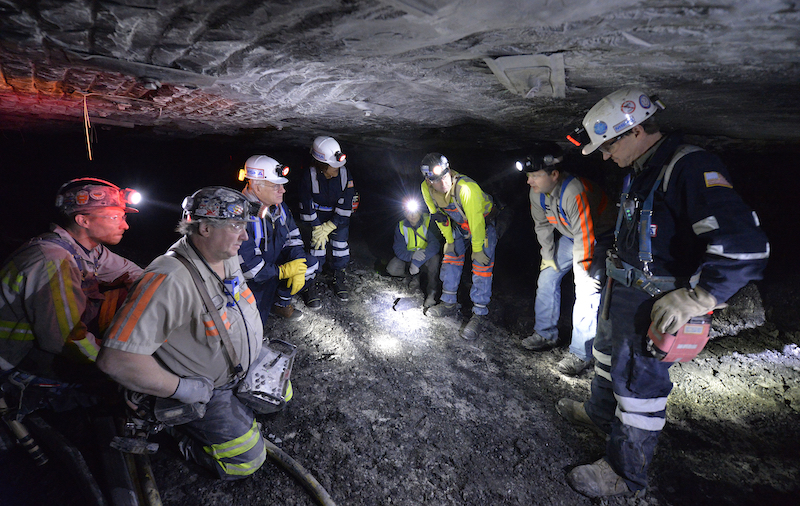At the Crossroads Recovery Home in Gilbert, West Virginia, the residents — all women — can have as much of a leadership role as the case managers and other staffers helping them.
The women are in charge of maintaining their own 12-bed house. They lead a few of their own classes in a small building next door. They drive each other to off-site meetings for Alcoholics Anonymous and Narcotics Anonymous. One of the Crossroads women is helping a handful of others study for their GED.
“But we also support each other in recovery,” said resident Rosa Lovejoy. “The older mentors can help with the newer ones, with their phases in recovery. And if they’re just struggling to get used to the new environment, we’re here for them, to make that environment more comfortable.”
Lovejoy is highlighting something distinctive about Crossroads, and the reason the home receives $120,000 annually in state grants for its 12-bed recovery home. (Crossroads also has a postpartum suite for one mother in recovery and her young children, funded separately by donations.)
Crossroads operates on a peer-supported recovery model. In the world of recovery, research shows that peers can effectively help others remain substance-free for a longer period of time.
Several medical experts have said peer support should be used to enhance other forms of treatment, and it doesn’t serve as a replacement. Crossroads Executive Director Angela Sparks says the women who participate are supposed to be substance-free when they arrive.
The peer role hasn’t always been a formally recognized one in the recovery and treatment process. But now, more programs — like Crossroads — are incorporating peer support into their day-to-day operations.
Some programs even employ state-certified peers, to coach or mentor people at various stages in the recovery process.
According to the West Virginia Department of Health and Human Resources, as of October, the agency had certified 268 peer recovery support specialists through its Bureau for Medical Services since July 2018. With state certification, these peers can be reimbursed for their work through West Virginia Medicaid.
Some of the Crossroads women, including Lovejoy, are training to become peer recovery support specialists, also called peer recovery coaches.
Of that $120,000 total the home gets in grants, $35,000 is focused on paying for recovery coach classes.
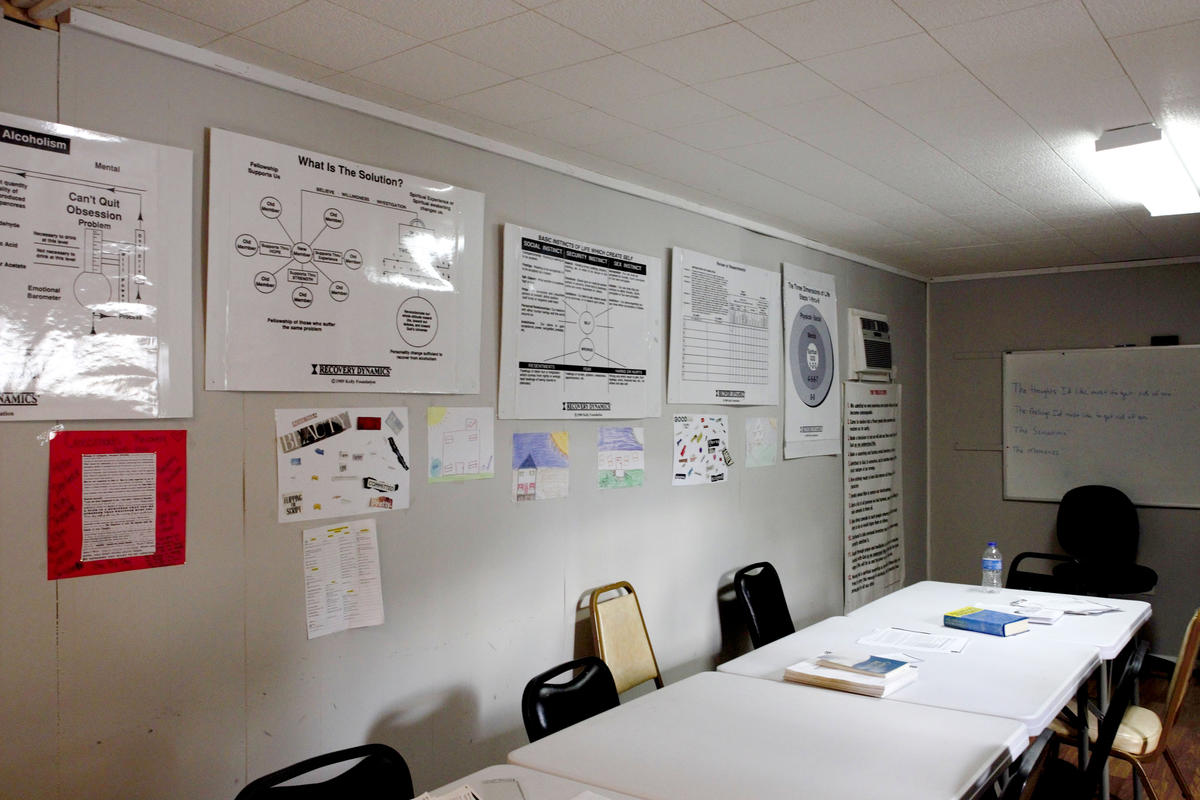
“So that way, if that’s something we want to do when we come out, just help others in addiction, like us, [they] pay for our classes so we’re able to do that,” Lovejoy said.
At the time we spoke with Lovejoy, she and others were working to complete their 40 hours of volunteer field experience. That’s one of the state’s requirements for certification.
The Value Of ‘Lived Experience’
According to Greg Perry, president-elect of the West Virginia Certification Board for Addiction and Prevention Professionals, a peer recovery coach is a person with “lived experience of substance use disorder or another behavioral health condition.”
“And that lived experience is their value,” Perry said. “You can only get that experience, obviously, by living through it, which means you were in active substance use or another behavioral health condition. And you are now in recovery from that.”
He estimated in October that peer recovery coaches working anywhere in West Virginia can make anything from $9 an hour to $15 an hour.
State-certified peers are sent to all kinds of places, including hospitals, criminal justice centers, recovery homes and behavioral health centers.
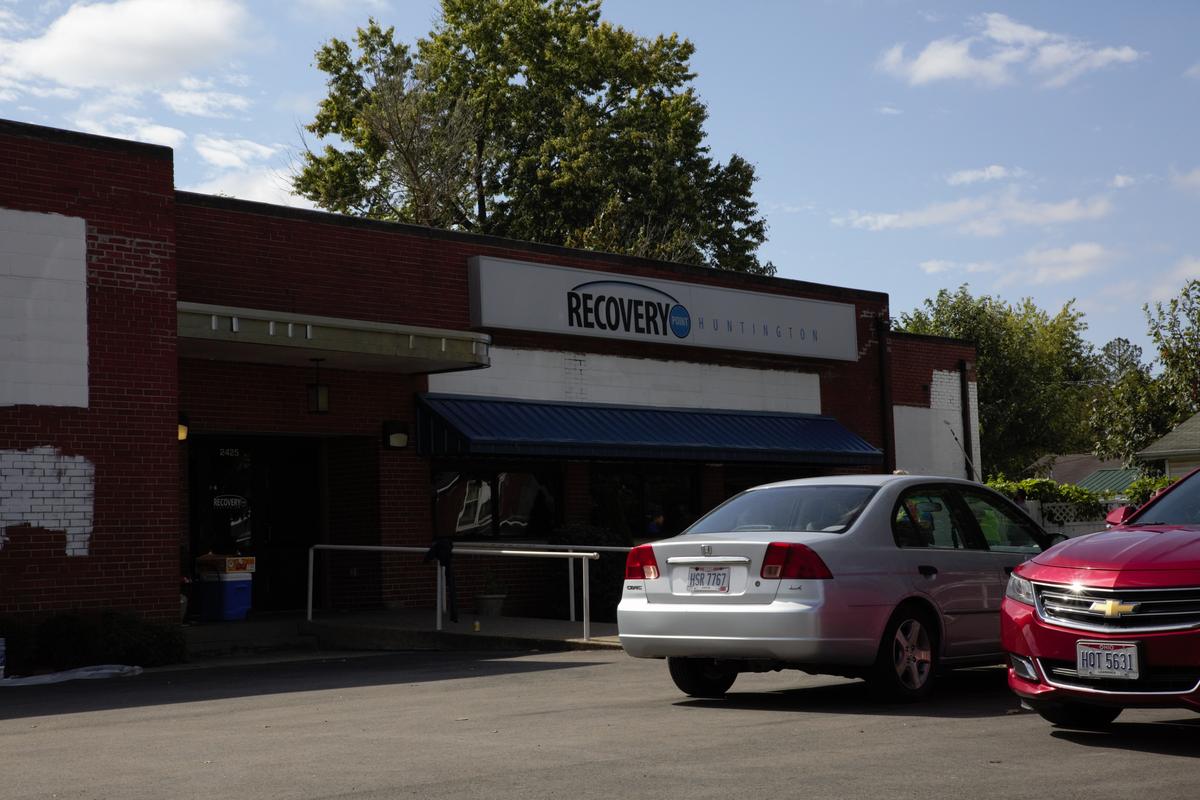
Perry also is the director of recovery support services for a statewide network of homes called Recovery Point, one of the 17 recipients of a DHHR grant in 2018 for peer recovery coaches.
According to Perry, the organization plans to open a licensed behavioral health center, also in Huntington. He says it plans to employ roughly 20 new state-certified peer recovery coaches.
Any time Perry walks through a Recovery Point site, he easily can point out and elaborate upon which phase in the recovery process each room represents.
There are bedrooms filled with bunk beds for when people first enter the program. Later on, they move to larger rooms with more beds and more responsibilities — eventually, clients begin taking classes on recovery topics at an off-site location, which they have to walk about a mile to reach. Perry says when the clients aren’t in class and they’re not sleeping, they’re working in the kitchen or they’re helping clean the building.
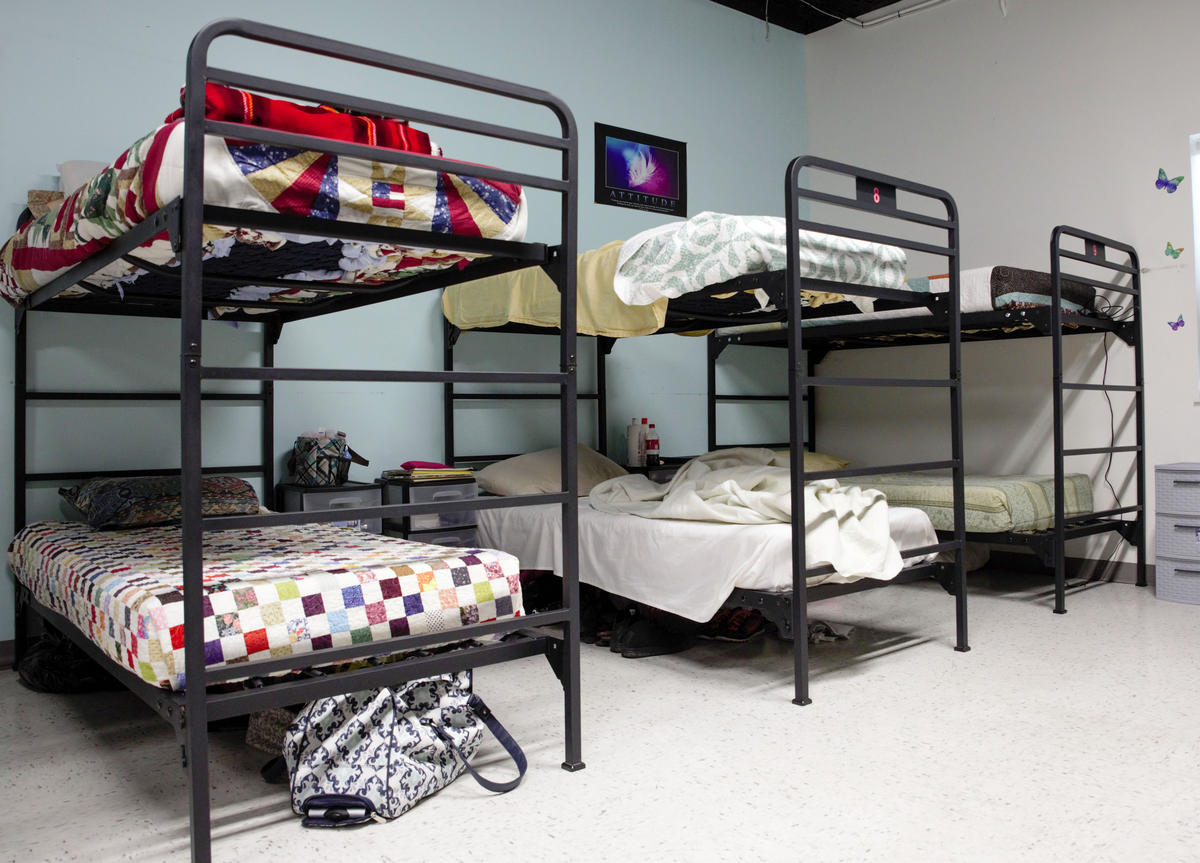
Toward the end of a person’s time at Recovery Point, clients can choose to stay in the building and apply to be a peer mentor, a special position in the Recovery Point system that gives senior residents at Recovery Point the ability to coach others.
Years ago, Perry went through these same phases, as a client of the men’s center in Huntington. Most of Recovery Point’s full-time staffers are graduates of the program.
“Living in an environment like this, where everybody sees everything you do, there’s no secrets,” Perry said. “There can’t be, in a room like that. So, you really learn how to gradually start to learn how to hold yourself accountable, for issues you have.”
Peer Support Roles Can Be A ‘Transitional Step’
Experts agree that when you’re in treatment, or just in recovery, having a peer relationship makes a difference. Dr. Kathlene Tracy directs the psychosocial division within the Addiction Institute at the Icahn School of Medicine at Mount Sinai, in New York.
Tracy says she has worked for years at various academic institutions, studying peer support models and methods. Before Icahn, she did work with groups like the National Institute of Health to develop peer support treatments for veteran populations.
“It allows an abstinence-based relationship to occur, at a time when the person may be at limited access to relationships,” Tracy said of peer support. “In addition, you’re taking somebody who has been through recovery themselves, and knows that system, who is particularly in tune to the struggles that an individual may be facing at that time, to give them additional encouragement and support.”
When done right, Tracy says, peer relationships also can be good for the peer offering support.
“Often it’s like a transitional step for them,” she said. “So, by being a peer, or a peer specialist, or peer mentor — the term is different things throughout time — an individual has an ability to be seen in helping as a helping professional, and then that opens the door for other jobs and positions.”
Back at Recovery Point in Huntington, intake coordinator Mike Robinette spends his days taking phone calls and answering emails from people interested in entering the program.
“That takes up every moment of my day,” Robinette said. “I’m constantly on the phone with probation officers, parole officers, attorneys, talking about their clients qualify.”
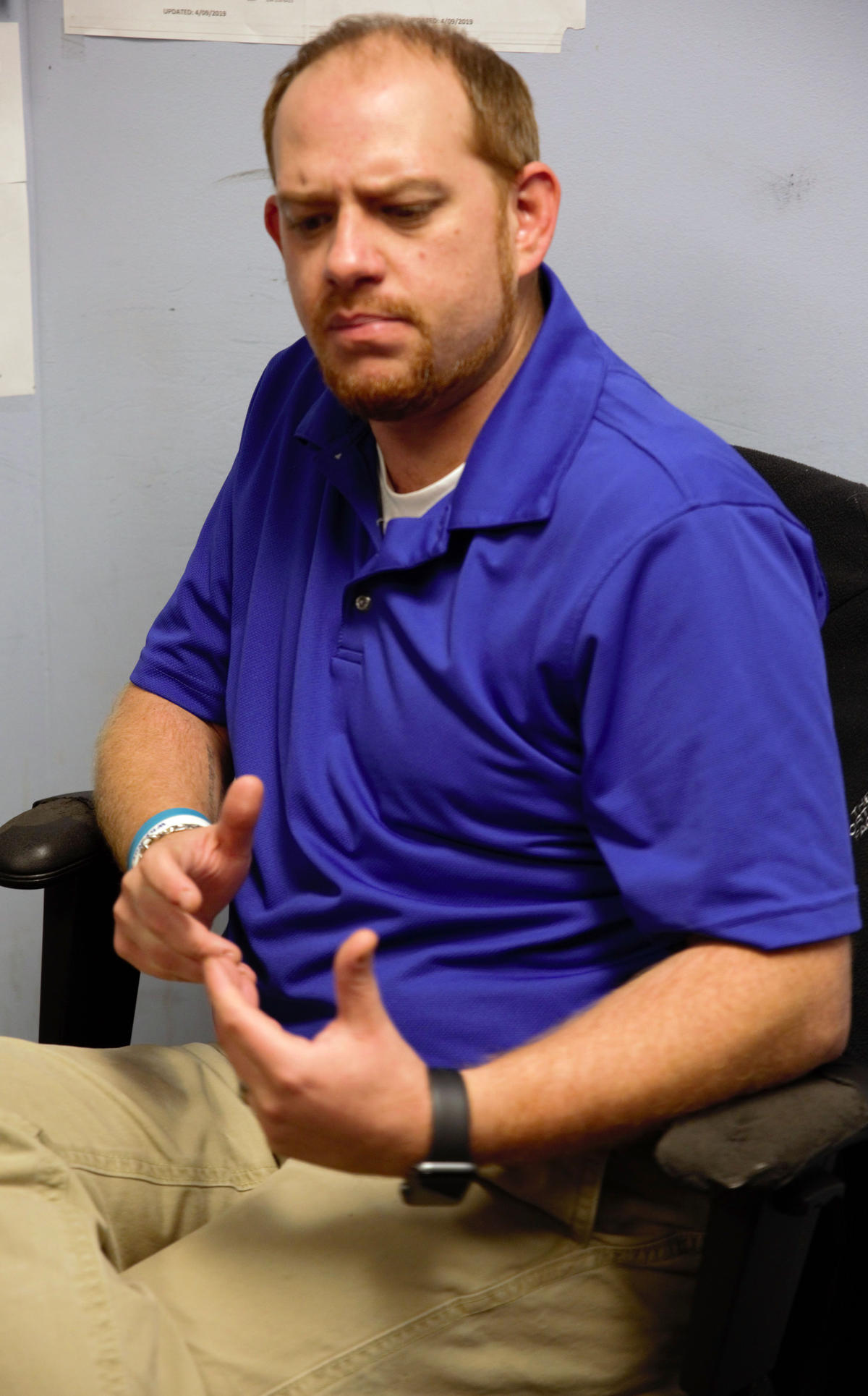
Robinette entered Recovery Point in
Huntington as a client in July 2015. Less than a year later, he decided to become a peer mentor and support the work of other clients who are newer to the program.
He says it was the most fun he had.
“Because I was able to see this program, I was able to see how this program had worked in me,” Robinette said. “Because I was able to pass that along to other people.”
At the time of our interview, Robinette was preparing for a new job as a transition agent in southern West Virginia. He said he’ll be working in Logan county, where he grew up.
“After four-plus years of sobriety, I feel like it was God telling me it’s okay to go back now and be a part of something in the coalfields,” Robinette said. “And try to help people who are just like me from the same area as myself, get back into life on life situations, and try to be happy, and accomplish the things that I have.”
This article was originally published by West Virginia Public Broadcasting.


